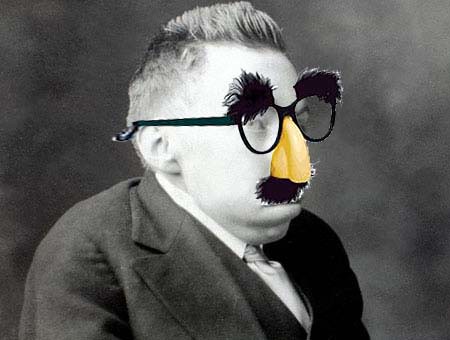Weisbard starts out by offering up the album's historical moment as the twilight of the blockbuster "event" album release, one followed by an inevitable two years of stadium tours and expensive videos, an era ended more by the fragmenting of public tastes than the so-called "alternative rock" revolution. Using the trajectory of the Musicland chain as a paradigm, he shows the rise and fall of the dominance of a small group of individual artists (Springsteen, Madonna, Zeppelin, etc.) within the music industry as a whole. UYI, as he awkwardly abbreviates the twin behemoths, were the grand finale.
As an incurable Hegelian who loves revisionist narratives, I found this to be thrilling stuff. The first two dozen pages of the book are stuffed with ideas, examples, connections, allusions and compelling arguments. The rest of the book is decent, but none of it holds up to the opening. Not because it's bad, mind you, just because the first bit is really good. Weisbard talks about his own music writing career, and which artists loomed large at each stop. Fine, interesting stuff, he's certainly been around enough. Then he recounts the oft-told history of the Guns in their heyday, followed by Axl's tortuous vanishing act. The history is well-written and interspersed with in-depth musical analysis, though mostly of non-UYI tracks. Still, Weisbard's thoughts on "Sweet Child O' Mine" and "One in a Million" are interesting enough that I didn't mind if he wandered off from the point.
I enjoyed the book thoroughly until the last chapter, when he finally addresses the albums track-by-track. Earlier in the book, he made a point of explaining that he hadn't heard the album in years, was relying strictly on (remarkably vivid and quite believable) memories to write most of the book, and would listen to it once again at the end. The last chapter consists of a sketchy and unsatisfying paragraph or two about each song, which Weisbard brags was largely unedited. Cute idea, but a little lazy. There are a few terrific insights scattered throughout: he dismisses the first two tracks on UYI I as filler with the zinger, "Two throwaways in a row. In the notorious tradition of GN'R live, are they now even showing up late for their own album?" But there just isn't enough of this, and I can't help but thinking that a few more hours of work could have made an enormous difference in the content (to say nothing of the grammar).
Part of the problem may have been that I found myself disagreeing with many of his assessments, and surely this coloured my overall view of the chapter. Weisbard is clearly obsessed with Axl Rose, and views GN'R as Axl's band, UYI as his flawed masterpiece, and other band members' contributions as lesser tracks. Izzy Stradlin's songwriting contributions are dismissed as half-written Stones knockoffs (sort of true, but that doesn't make all of them bad), while Slash's guitar work is heard as an annoyance to be sat through while waiting for the auteur to sing again. Hasn't he noticed that the band is (literally, to judge by their studio output) nothing without those guys? That Axl is completely lost on his own, reduced to an infrequently touring nostalgia act? That "Bad Obsession" rocks, but "The Garden" is corny-ass bullshit? Well, everyone's got their own favourites, I suppose. Plenty of room for that when you've got two and a half hours to sift through.

No comments:
Post a Comment